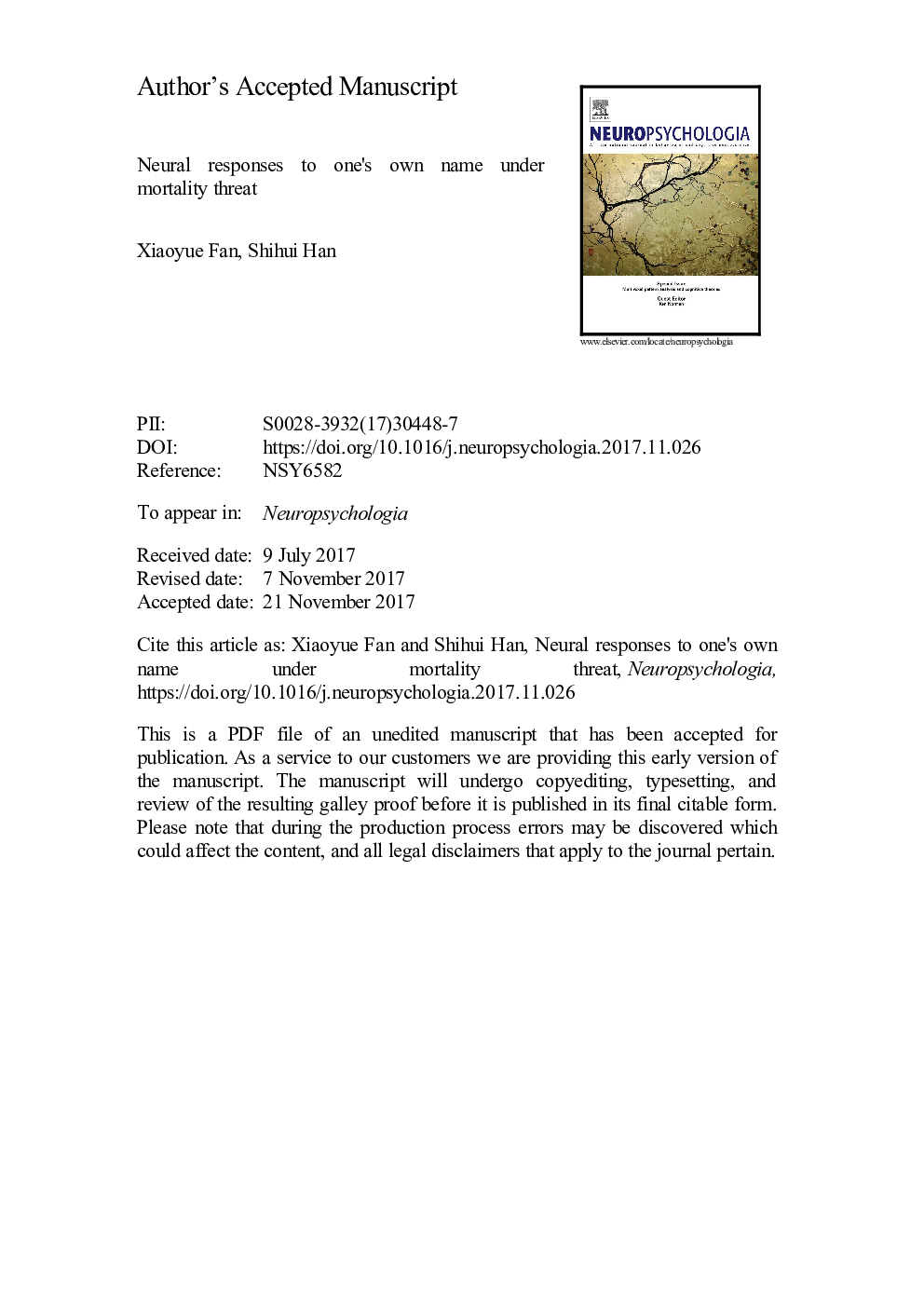| Article ID | Journal | Published Year | Pages | File Type |
|---|---|---|---|---|
| 7318142 | Neuropsychologia | 2018 | 47 Pages |
Abstract
Recent behavioral research has shown evidence for greater inclination to avoid symbolic cues of mortality threats in nonbelievers than Christians. However, the neurocognitive mechanisms underlying religious influences on behavioral tendency to avoid mortality threats remain unknown. We tested the hypothesis of distinct arousal/attention-related brain responses to self-related information under mortality in nonbelievers and Christians. We recorded event-related brain potentials (ERPs) from Christians and nonbelievers while they viewed their own names and a stranger's name (i.e., Zuma) that flashed around a cue word (i.e., death, pain or life) located at the center of a screen. While own name vs. a stranger's name induced faster responses and larger P3 amplitudes, the P3 amplitudes to own name showed distinct patterns of modulations by the cue words in nonbelievers and Christians. Specifically, own name elicited larger P3 amplitudes in the death than pain/life cue conditions in nonbelievers but not in Christians. Moreover, the differential P3 amplitude to own names in the death vs. life cue conditions predicted greater inclination to avoid mortality threats in nonbelievers but not in Christians. Our findings provide a neurocognitive account of increased behavioral tendency to avoid mortality threats in nonbelievers than in Christians.
Related Topics
Life Sciences
Neuroscience
Behavioral Neuroscience
Authors
Xiaoyue Fan, Shihui Han,
